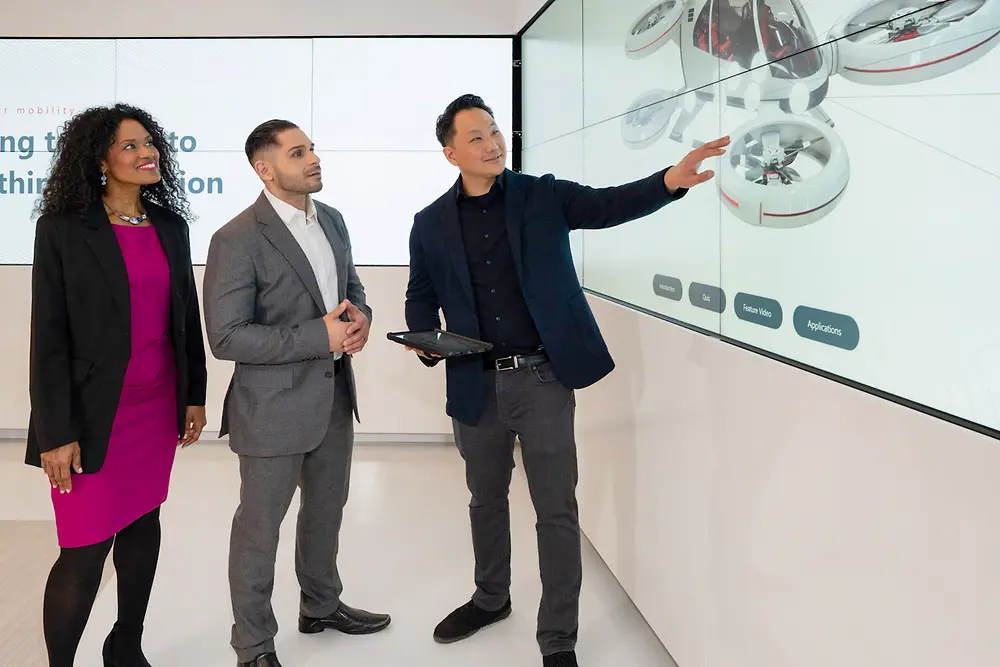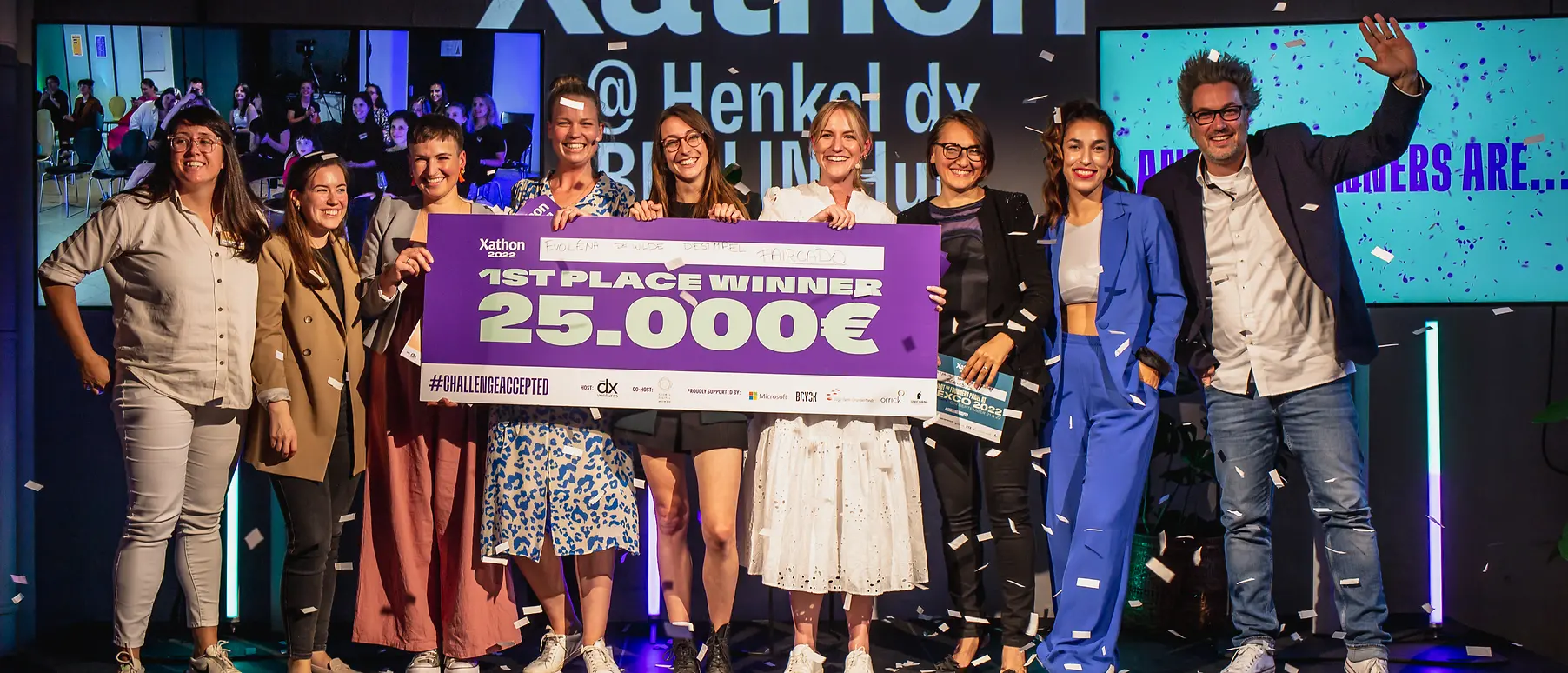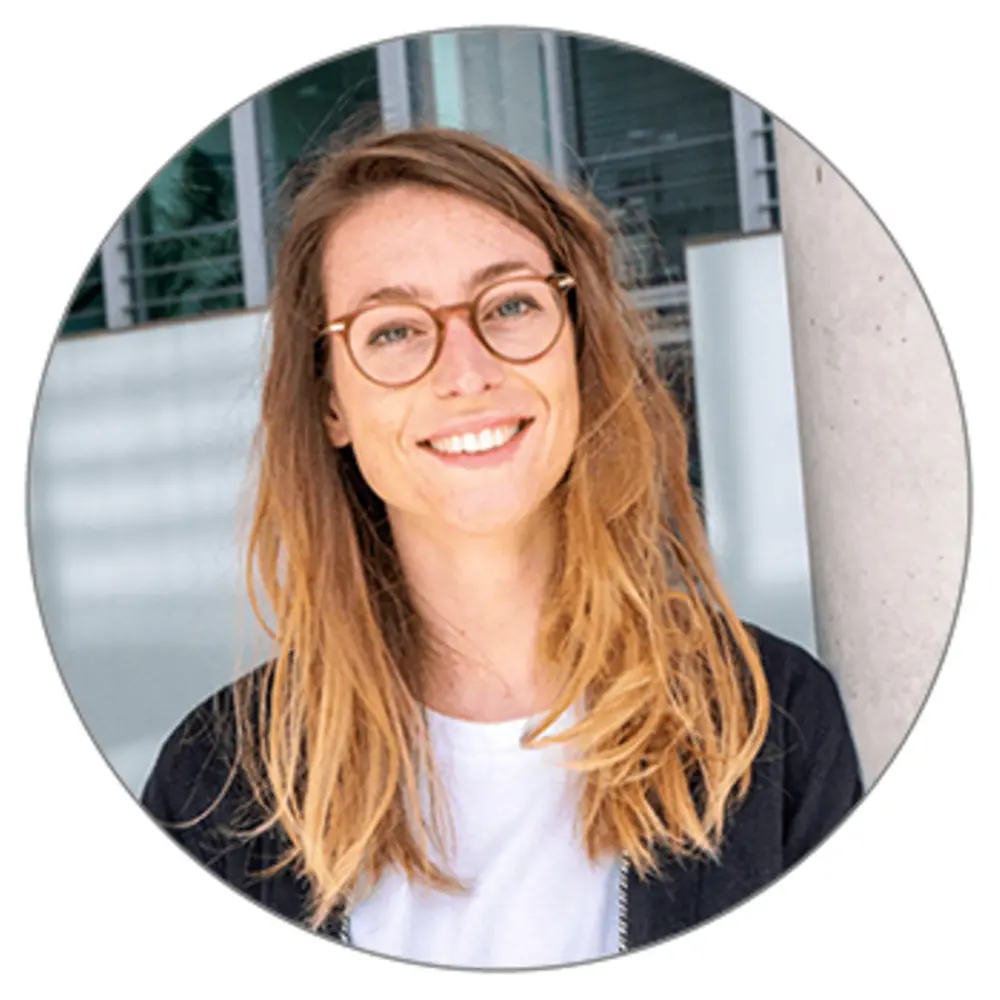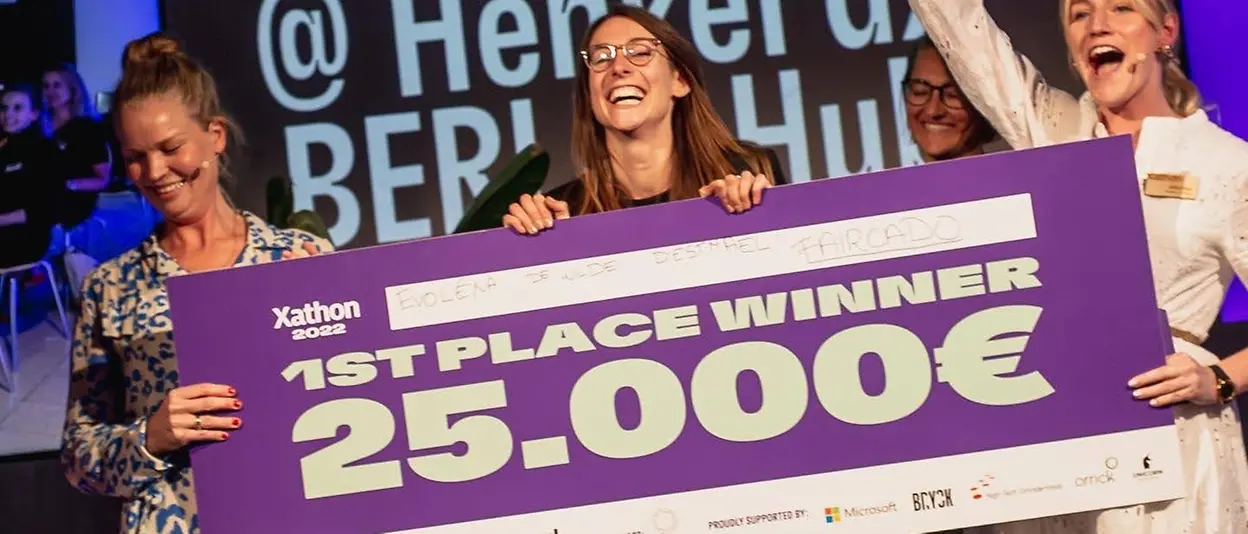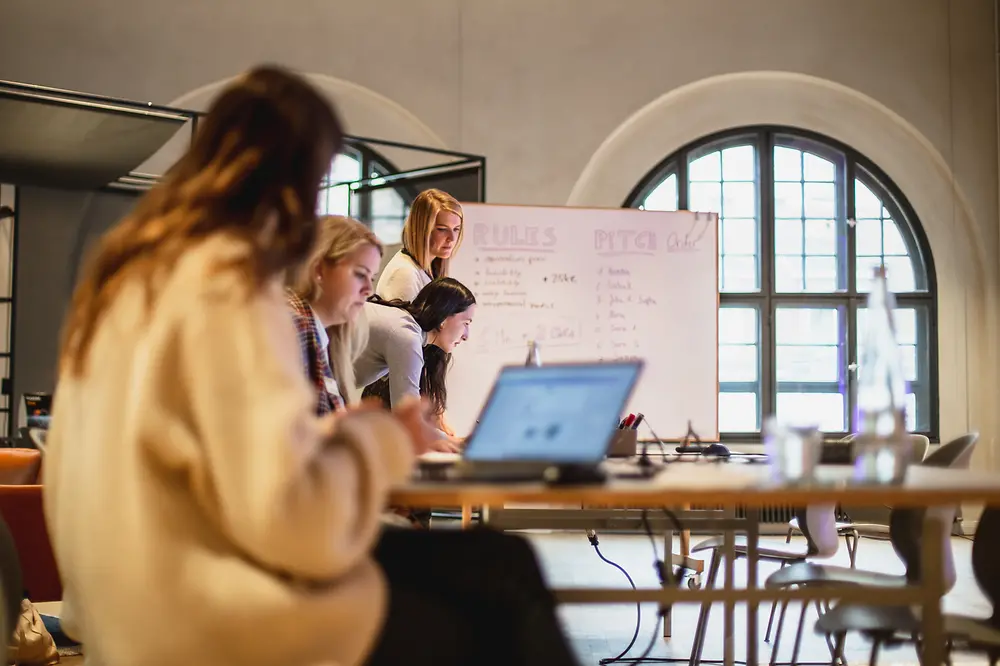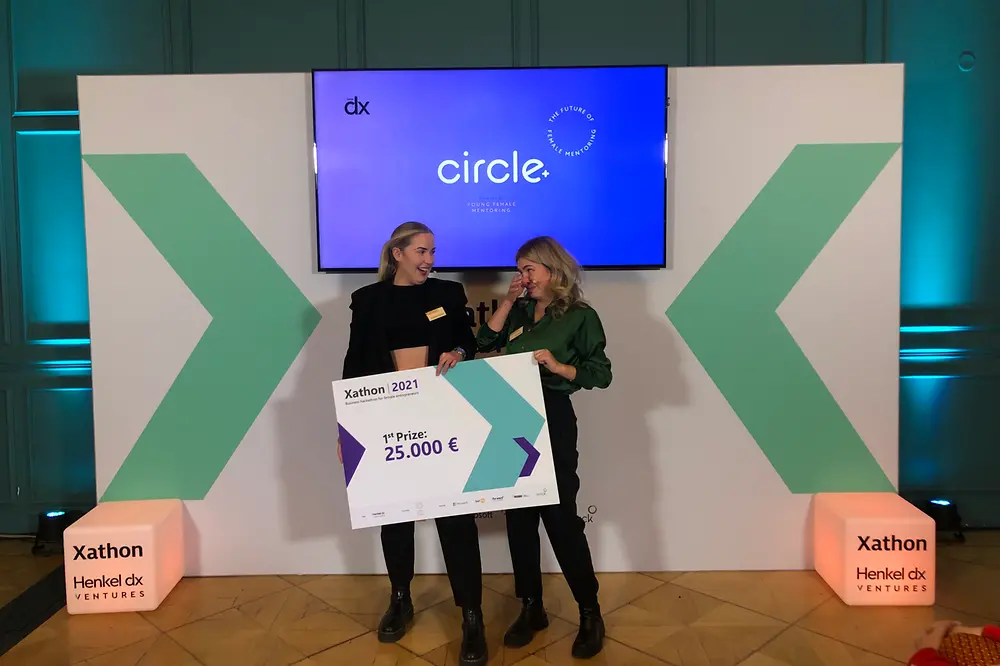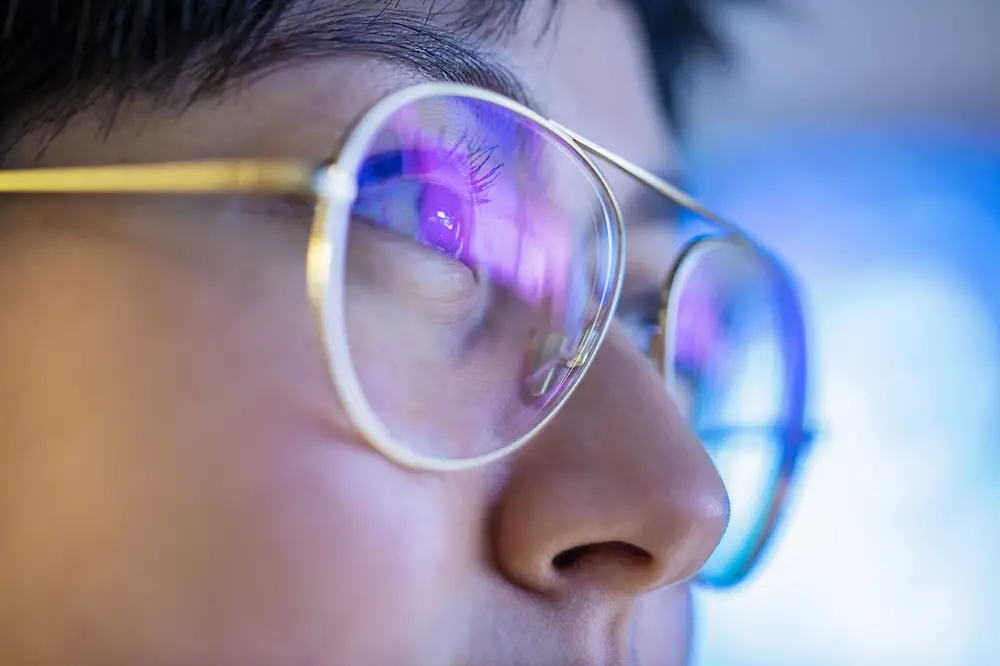Evoléna: Absolutely. We are also currently taking part in discussions for further financing which are also going well. I’m glad that we have struck a nerve with our product, which has the core objective of stopping the waste of resources.
Evoléna: Well, the Xathon played a big part here, of course. I received enormous attention on social media during this time. Many people have asked me online and offline about winning the Xathon and about faircado. That helps immensely. We want to take this positive energy and interest and leverage it for our new product.
The Xathon is Henkel's business hackathon and offers female founders a platform for networking.
You said you hit a nerve. Why do you think that is?
Evoléna: I think that many people have understood that we are running out of time and alternatives when it comes to sustainability. Today, our world is only 8.6 percent circular. That means over 90 percent of all natural raw materials are used only once. You don’t need expert knowledge to see that this doesn’t work.
How did you come up with your idea?
Evoléna: My co-founder and CTO Ali Nezamolmaleki and I met at another startup. Conscious and sustainable consumption has always been very important to us, so we’ve always been very mindful about our shopping behavior. But anyone who has ever tried to find something specific as secondhand item knows the problem: The search is time-consuming, uncomfortable, and not very exciting.
Did you feel the same way?
Evoléna: Yes, after spending hours scrolling the internet to find and compare offers for the mobile phone I was looking for, I said: Enough! We have to do something. Ali is a technical genius; he knew exactly what the solution should look like to make secondhand shopping fit for the 21st century.
Have you always been this active when it comes to sustainability?
Evoléna: Ever since I was 12 years old. I watched the movie "An Inconvenient Truth" by Al Gore with my parents. Admittedly, at that age, it was quite a lot for me to process. But at the same time, it was a push. I've been very involved and committed to sustainability since then, both in school and at university. I could have worked in politics after graduating, but I decided to go the startup route.
Why?
Evoléna: I believe that political decisions are important. Nevertheless, I feel that I can have a bigger impact working in the startup world. Also, after graduating, I wanted to get to know new cultures, get out of my comfort zone and gain new experiences. That's how I ended up in Berlin. I worked in different startups there. Then, during the pandemic, I founded Solidartsy myself, a non-profit. We helped female artists become financially independent and organize themselves. I felt an immediate impact. And then the idea of faircado was born.
What is your goal?
Evoléna: We want to transform e-commerce into re-commerce. We want to give people the opportunity to easily purchase products that foster the idea of circular economy. We have already won 35 partner platforms in Germany for this purpose. We can currently map over three million products via our tool. If we continue to grow, we will soon be able to find a circular alternative for almost every product.
Your company has been around for about one year now. As the founder, how have you experienced this time?
Evoléna: Very intensely. We did everything we could to create a well-functioning product as quickly as possible, especially when it comes to the technology. And we worked very closely with our users, we did new tests again, including surveys on the street. We've grown quickly, a year ago there were just two of us. Today we are a team of twelve people in total. For a young company that was until recently still in the early planning stages, that's a tremendous success.
This was already the second time you participated in the Xathon. Why did you want to join again?
Evoléna: It was mainly last year’s positive experience. I met some of my closest founder friends, mentors and advisors in 2021. That's one of the reasons why I thought I would participate again. More than that, I wanted to win this time. I was much further along than I had been a year earlier. I had presented my pitch countless times and was more practiced. That paid off.
What makes the Xathon different from your perspective?
Evoléna: The days are gone when people see the other female participants as competition at events like this. We know that we need more committed female founders, more women with responsibility. And the best way to do that is to support each other. Once again, I met great female entrepreneurs. The Xathon is a great opportunity for us to build a supportive network. Directly on the day after the Xathon, I organized a female founders brunch with some participants and other friends from my network.
